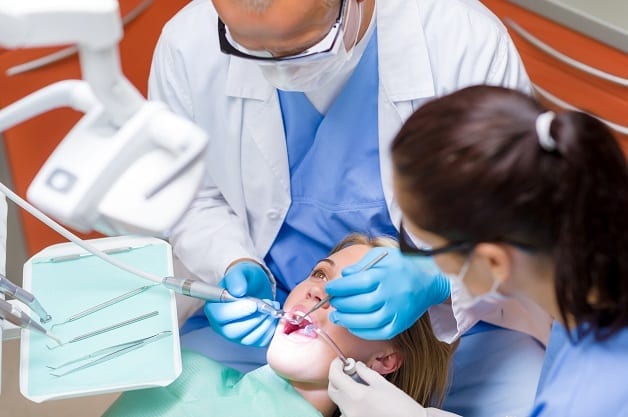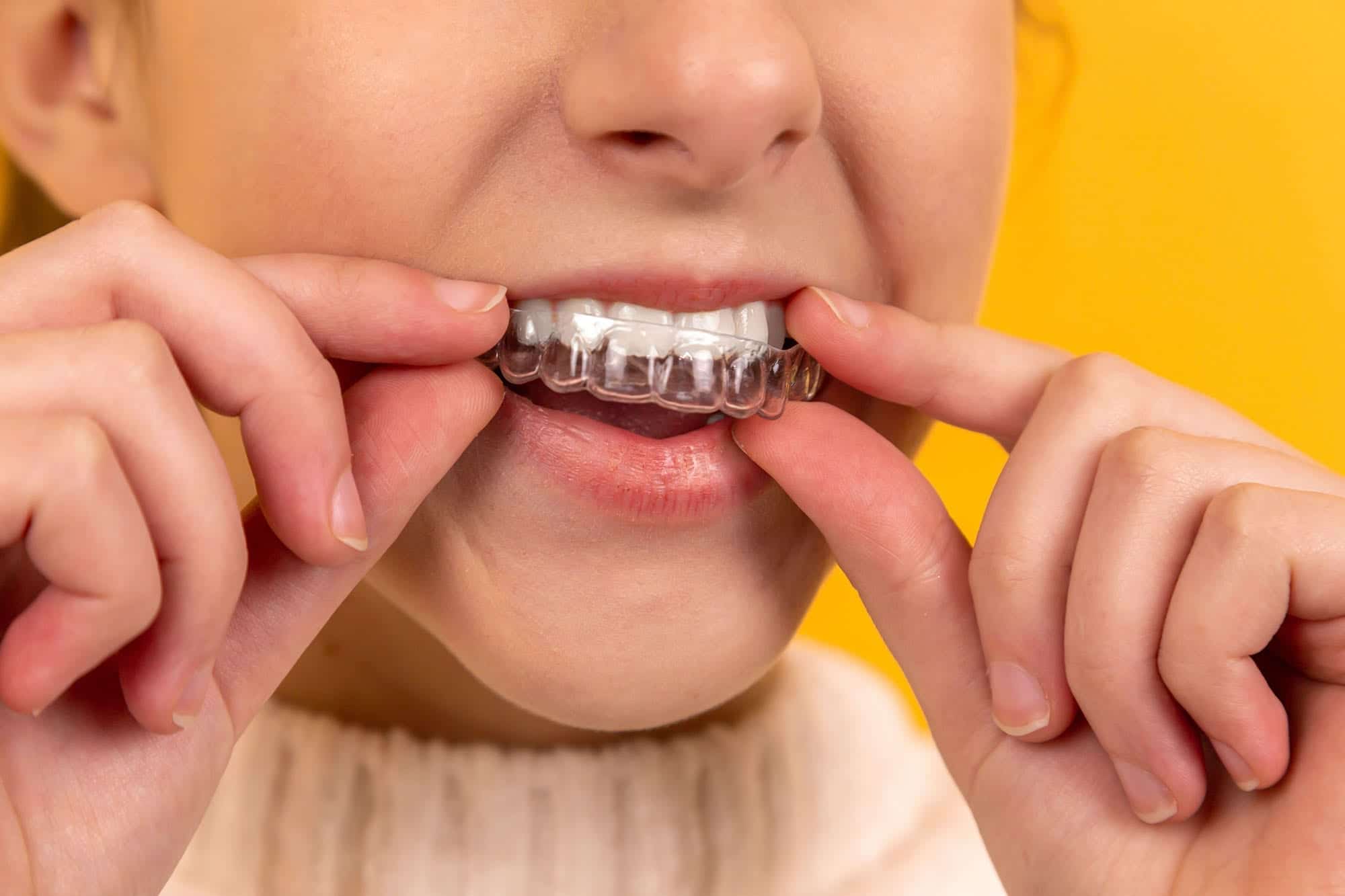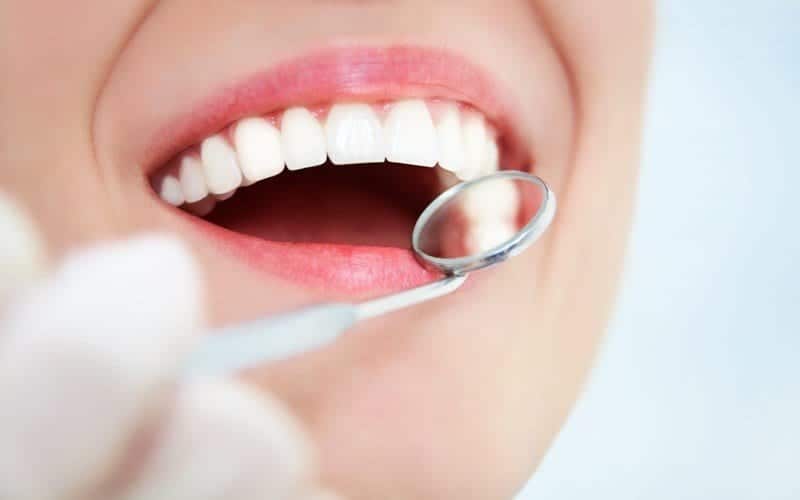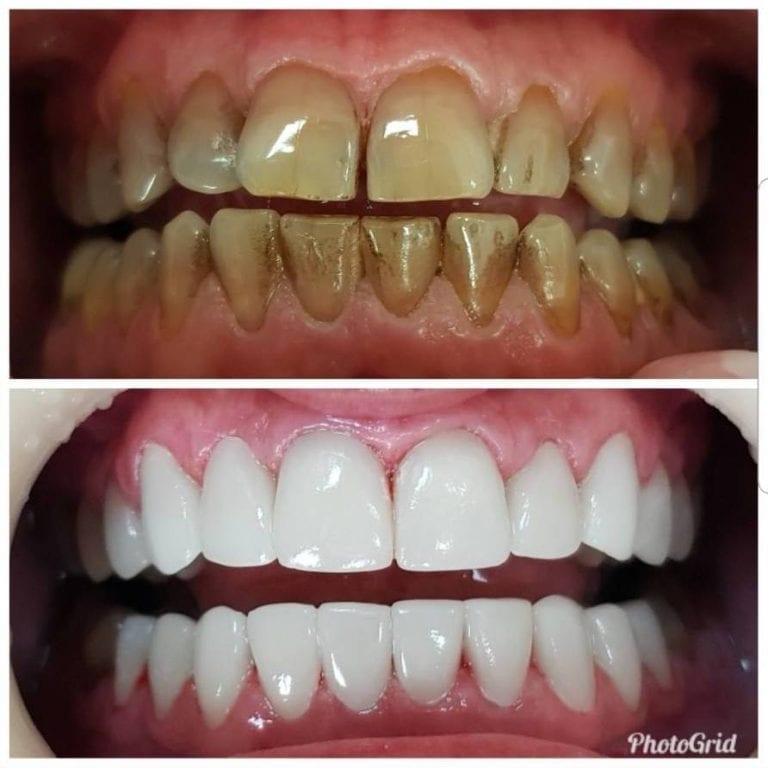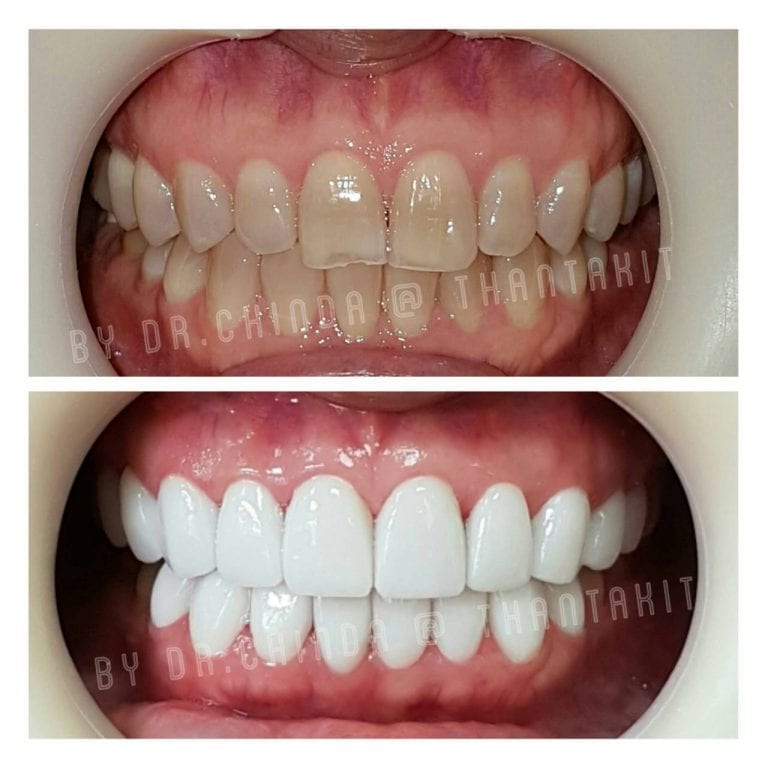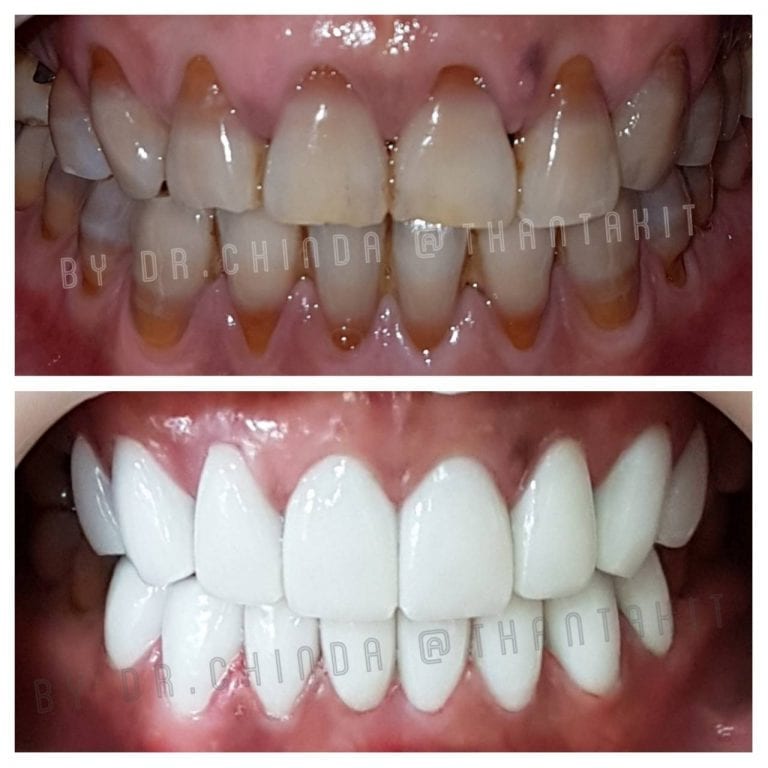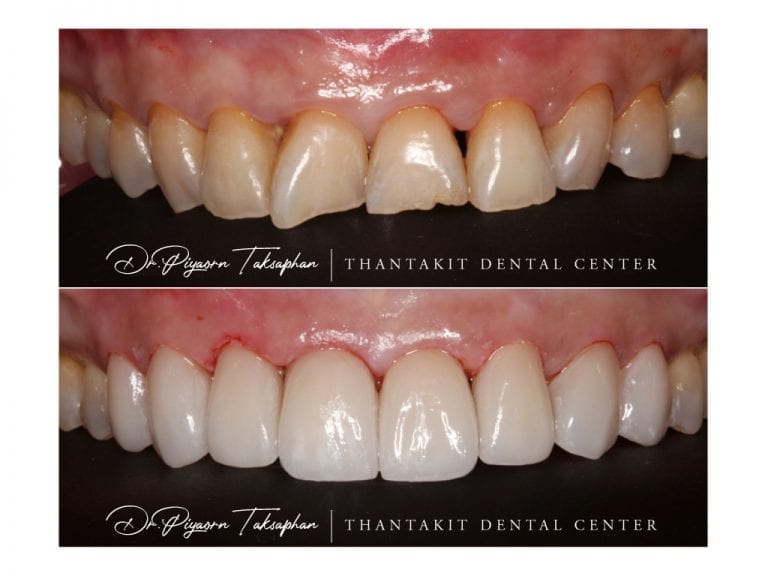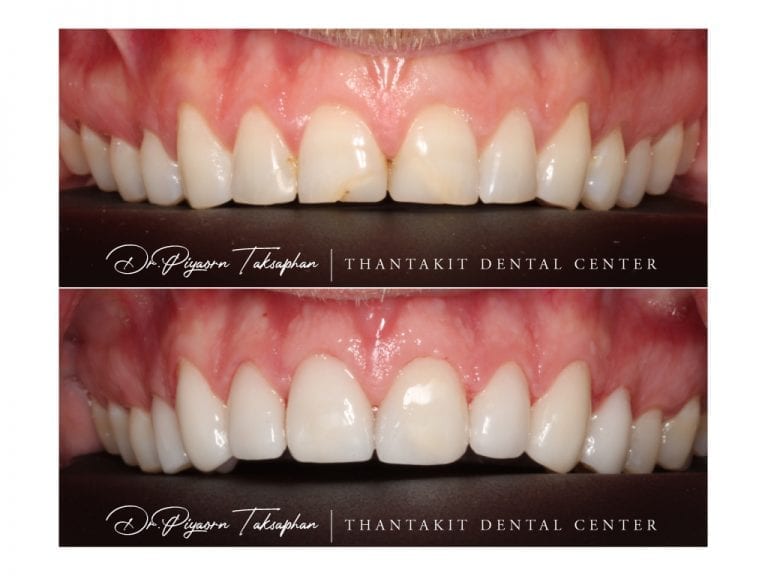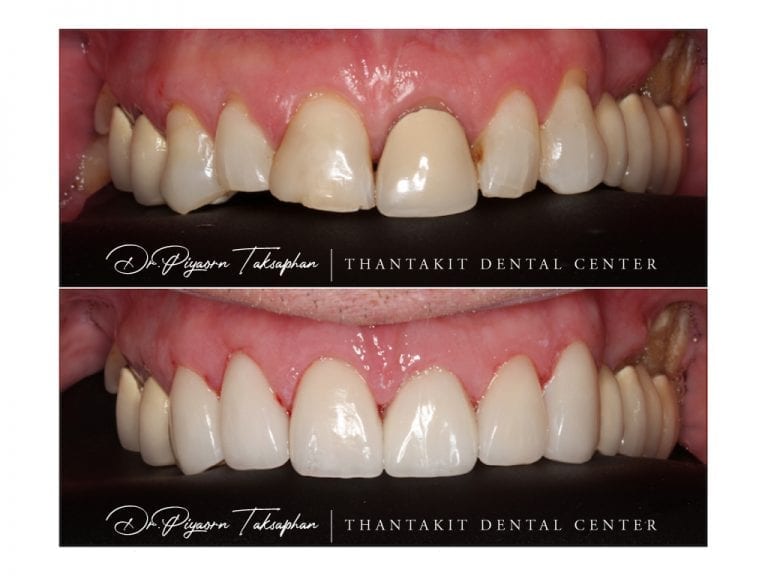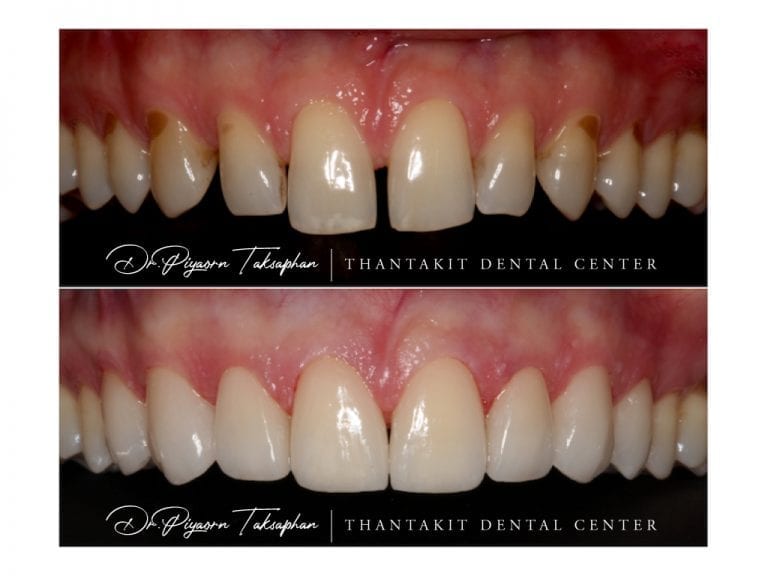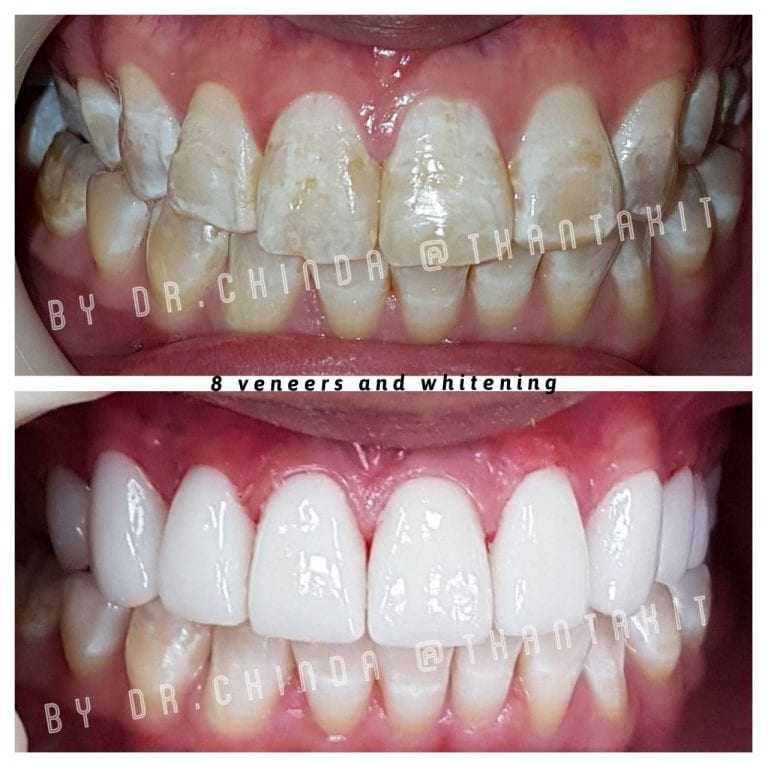Porcelain Veneers: What You Need to Know
Veneers are wafer thin laminates or shells of tooth colored material (which can be either porcelain, ceramic or composite bonding material) that are “cemented” to the front surface of teeth to improve their cosmetic appearance.
Many dentists use the analogy that dental veneers are for your teeth what false fingernails are for your hands. In a similar manner to how false fingernails are placed or glued to your existing fingernails, veneers are bonded to the front of your existing teeth.
With that in mind, let’s have a more realistic and practical look at what veneers in Thailand can bring to the table as far as your dental issues are concerned.
Problems Which Veneers Can Solve
There are a wide variety of reasons why patients opt to get dental care in the form of dental veneers. Here are some of the most common reasons:
-
Stained Teeth: Badly stained teeth that cannot be improved by teeth whitening can greatly be improved by dental veneers, which function to cover and “hide” any existing stains on your natural teeth.
-
Damaged Teeth: Teeth that have either become badly worn with excessive grinding, by carbonated drinks, or have been chipped or broken in an accident can benefit from veneers.
A small chip on a tooth can quickly be repaired with composite bonding or “composite veneers” which are one and the same thing.
A single damaged tooth can easily be repaired with a single porcelain veneer that has the same characteristics and color to match your surrounding teeth so that it looks natural.
-
Gaps: Spaces or gaps (diastemas) between your teeth can be easily closed using dental veneers giving you a more uniform looking smile.
-
Crooked Teeth: Although veneers are not the ideal treatment choice for crooked teeth and from a point of view of preserving your natural teeth structure orthodontics or Invisalign braces would probably be a better solution.
However, treatments can take up to a year or longer with braces. For teeth that are not severely crooked, veneers placed over their front surface will give a straight and perfectly aligned looking smile.
For this type of treatment, many people refer to veneers as “instant orthodontics” since you get a similar end result in a fraction of the time.
OUR REAL CASES OF PORCELAIN VENEERS
Here are some examples of our real cases of porcelain veneers and how tremendous their cosmetic and functional value truly is.
Composite Veneers vs. Porcelain Veneers (IPS Empress System)
The most popular type of veneers is porcelain, which offers a stronger and more durable alternative to its composite counterpart.
Composite veneers in Thailand are also more prone to staining and do not last as long as porcelain veneers which also offer a more natural looking, translucent tooth-like appearance.
Composite veneers are much cheaper than porcelain veneers in general but considering that they do not last as long and need replacing more often, they could end up costing more in the long run.
Composite work is ideal for small chips as this treatment preserves more of your natural tooth structure.
A dental technician in a dental laboratory can fabricate both porcelain veneers and composite veneers. Composite veneers can also be directly fabricated inside your mouth at the dental office.
Dental veneers that are indirectly fabricated — that is, fabricated in a dental laboratory — are bonded to the teeth with various types of resin cement.
Of the two options, porcelain veneers in Bangkok are longer lasting and more expensive than their composite counterparts.
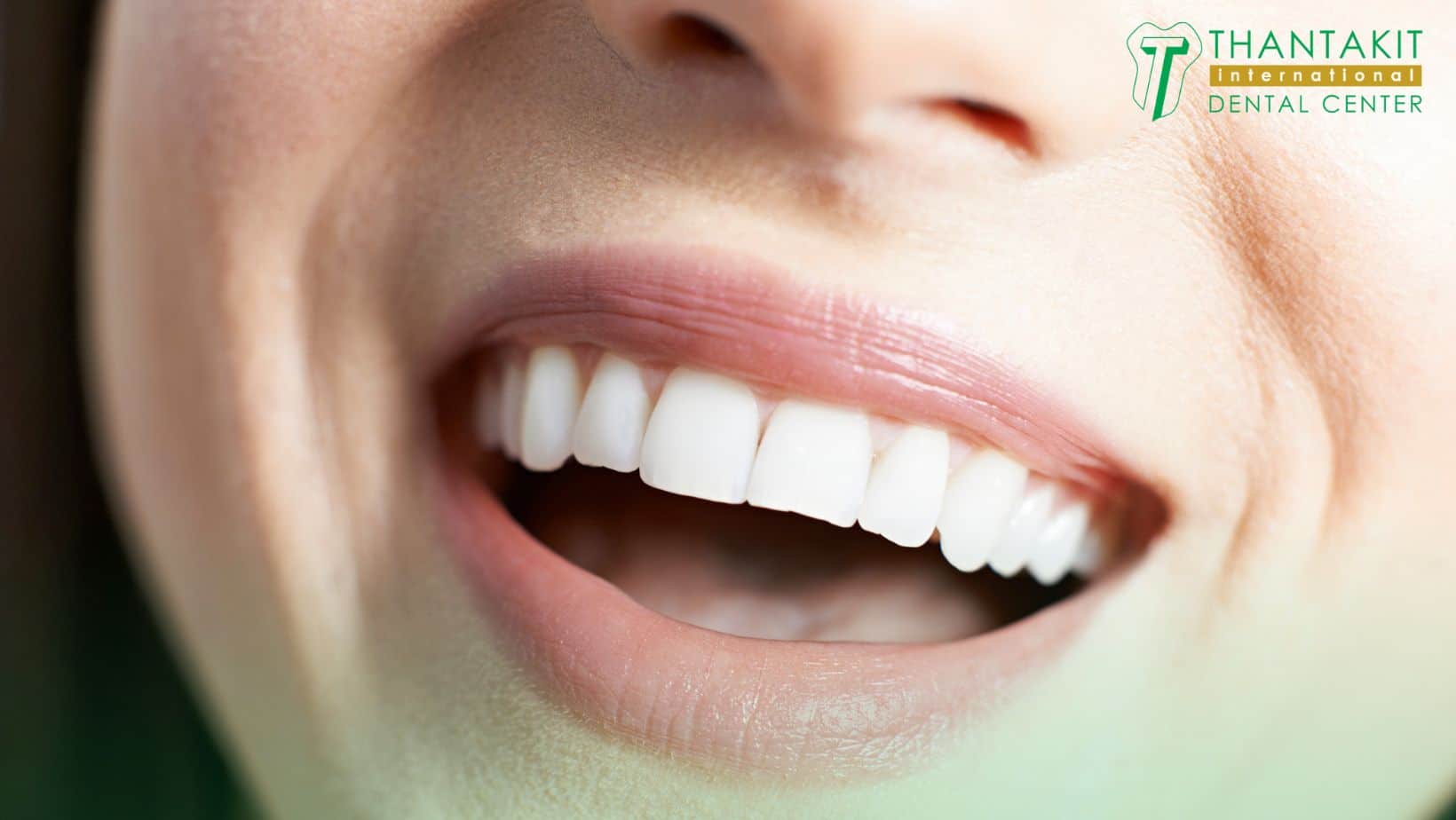
Procedure for Getting Dental Veneers
Here’s what to expect when getting dental veneers in Thailand.
-
The first part of any dental procedure is the initial consultation and examination so that the dentist can get a feel for what you want and understand your needs and concerns.
The dentist should explain the treatment procedure to you including an accurate guide to the likely costs of your treatment.
-
Before your veneers are designed your dentist will need to reshape and prepare the front surfaces of your teeth so that they can accommodate the veneers.
The first stage is to numb the teeth and gums with a local anesthesia so that you do not feel anything during the procedure.
-
Using a special tool called a burr (a dental drill or file) a tiny amount of the front surface of your teeth will be shaved off. The amount removed should be equivalent to the thickness of the veneer that will sit over the top of the tooth.
-
Next, an impression or mold (copy) of your teeth is taken. A special dental “putty” is placed into your mouth on a tray and pushed into your teeth so that it takes an imprint of your teeth, similar to how you would leave a footprint in sand.
-
This “impression” or mold of your teeth is then sent to a dental laboratory. The laboratory uses the impression to cast an accurate model of your teeth.
This model is then used as a guide to fabricate your new veneers. This process can take one to three weeks.
-
Whilst you are waiting for your veneers to be fabricated by your dentist you may be fitted with some temporary veneers to protect your prepared teeth. Not all dentists will offer temporary veneers.
-
On your second appointment your dentist will fit your new veneers to your teeth. First the dentist may just sit the teeth over your teeth to see how they look with your smile. He or she may need to trim or adjust the veneer.
-
Next your teeth will be thoroughly cleaned, and the front surfaces etched (roughened) with a special acid gel so that they provide a good surface for the dental cement to stick to.
-
The veneers are then cemented. A special curing light is used to activate the dental cement so that it permanently binds the veneer to the front surface of your prepared tooth.
-
If there is any excess cement it is usually trimmed away and polished to leave a beautiful and natural looking restoration.
How Long Do Dental Veneers Last?
When you get porcelain veneers in Bangkok, they will typically last between 5-10 years and composite veneers maybe a year or two at the most. The bottom line is that eventually your veneers will need to be replaced.
Although veneers are strongly cemented into place there have been cases where they come loose and fall off, in such situations it is important that you keep hold of your veneer and contact your dentist immediately.
To make your veneers last longer it is important to follow a good oral hygiene program and also visit your dentist for check-ups on a regular basis.
When are Veneers Appropriate?
Bonding often serves as an inexpensive and effective restoration for small chips and cracks in the teeth. Such minor problems may be functionally and cosmetically repaired with a composite “white filling.”
A composite resin material is bonded to the tooth to fill in the chip or crack and better protect the surrounding tooth structure.
But for more severe cases of dullness, wear, discoloration, mild chipping, cracking, spacing, or uneven teeth, dental veneers may be recommended as a more appropriate solution.
It makes more sense to avail of veneers in Bangkok if the cavity is too deep or the crack is too wide on the teeth in question.
Veneers or Whitening?
Tooth whitening may provide a white smile for mildly discolored teeth. Some people who are interested in veneers will find that their cosmetic dentist will steer them to the simpler alternative of whitening, perhaps combined with some simple orthodontic alignment.
The placement of dental veneers requires the “shaping” or “prepping” of all teeth being fitted with the custom-designed shells.
This process permanently alters the teeth that are treated and is therefore not recommended if your natural teeth are functionally and aesthetically adequate. If you have a severe case of dull or discolored teeth, you may have to opt for dental veneers.
Veneers do have the added benefits of longevity and a proven ability to enhance the appearance of the mouth, smile, and possibly other areas of an aged face that would be better supported by properly shaped teeth.
Although veneers require a much larger commitment than teeth whitening, the results are usually worth it.
VENEERS (COMPOSITE OR PORCELAIN)
| Composite Veneer | THB | Duration |
| Composite Resin Veneer (Direct Bonding) |
THB 6,000 per tooth USD 176 GBP 137 AUD 281 NZD 310 |
1 Visit |
| Porcelain Veneer | THB | Warranty |
| Porcelain e.Max Veneer |
THB 18,000 per tooth USD 528 GBP 409 AUD 842 NZD 928 |
 |
| Zirconia Veneer |
THB 18,000 per tooth USD 528 GBP 409 AUD 842 NZD 928 |
 |
| Zirconia Veneer with Digital Smile Design (DSD) |
THB 22,000 per tooth THB 20,000 per tooth (8 teeth) |
 |
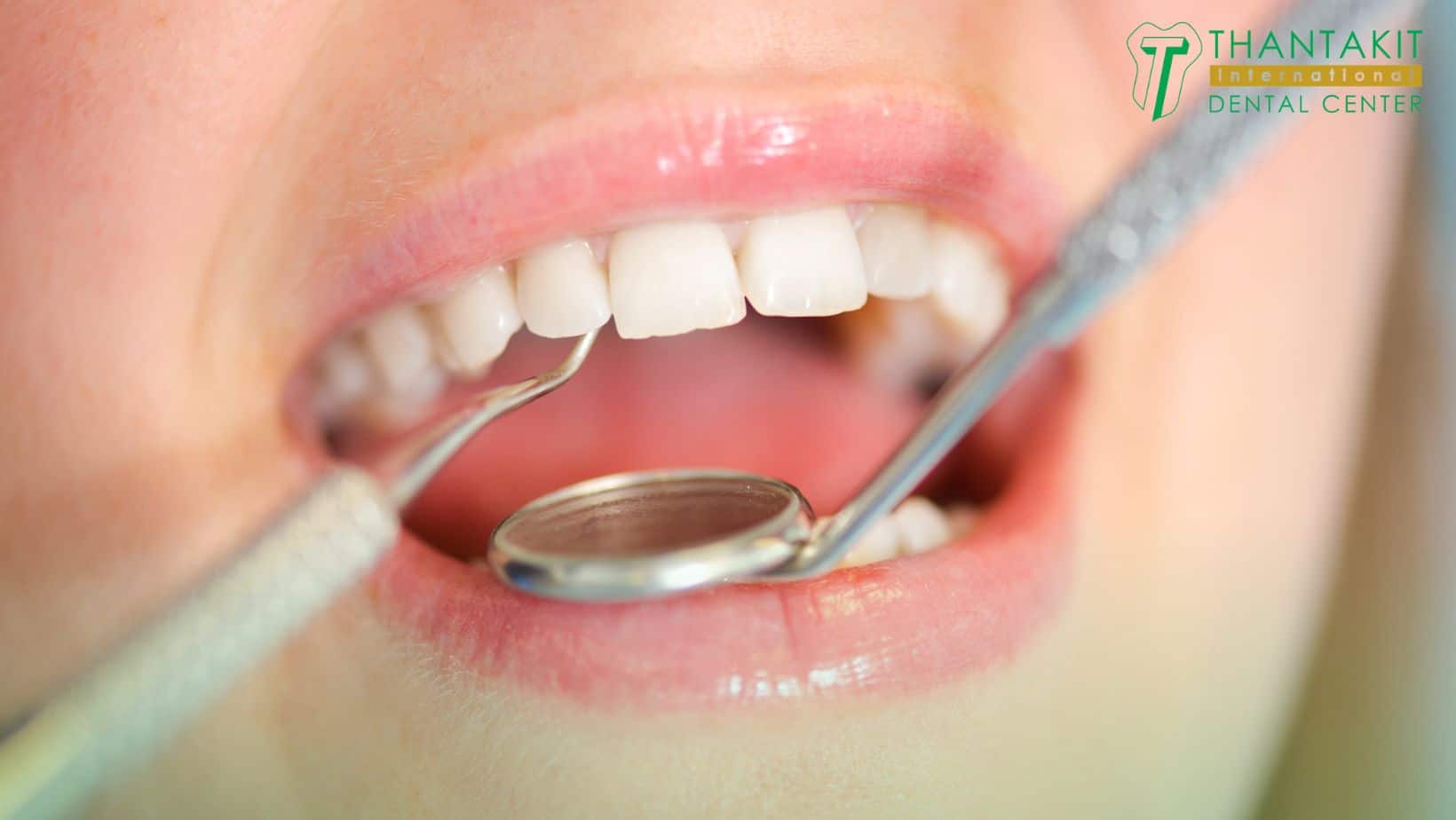
How Can Porcelain Veneers Help Me?
You might be asking yourself, “How can porcelain veneers help me? What’s in it for me?” You might even have reservations in light of it mostly being a “cosmetic” dental procedure.
However, the form of your teeth also affects its function, so the aesthetics don’t only go enamel deep. The whole point of getting porcelain veneers in Thailand.
Porcelain veneers cover chips, stains, and cracks along with other cosmetic imperfections. They also protect the teeth underneath from breaking further, but not as much as a crown would. To wit:
-
Better Alignment: If some of your teeth are misaligned or crooked, correct them with a more pleasing alignment care of veneers.
-
Confidence Booster: Boost your confidence and resolve insecurities in appearance by using veneers on your front teeth.
-
Closing Gaps: If you have a gap tooth or gaps between teeth, veneers can easily hide them compared to teeth filling or dental bonding.
-
Hide Discoloration: If you have yellow, brown, or darkened teeth (tetracycline stains), you can effectively hide them using veneers in Thailand.
-
Altering Shape: If you have misshapen, short, or chipped teeth, you can reshape them cosmetically and functionally through the placement of veneers.
-
Whiter, Brighter Teeth: Instead of bleaching your teeth, you can get brighter teeth by placing pearly white veneers over them at a much whiter shade.
-
Easy Maintenance: Taking care of veneers is quite easy. They’re just like natural teeth, so brush twice daily and floss before brushing to take care of them!
-
Customization: You can tailor fit your ceramic, composite, or porcelain veneers in Thailand according to your specific needs to get your desired tailor-fit smile.
-
Instant Results: You can quickly transform your teeth and smile with veneer placement. The procedure takes 2 to 3 weeks to do from preparation to installation.
-
Dental Tourism Benefits: Thailand doesn’t only have a lower cost of living, ensuring a similarly low cost for dental procedures that normally costs you an arm and a leg stateside. Its healthcare is also international level.
However, you must also beware because the procedure involves grinding away a small amount of tooth enamel from your existing teeth to allow the veneers to stick and bond with the tooth.
This enamel is permanently lost and replaced by the veneer. How much enamel is removed from the tooth varies on a patient-to-patient basis.
Frequently Asked Questions (FAQ)
If you’re considering getting composite or porcelain veneers in Bangkok, you should know the following information about the procedure to help clear your doubts when deciding to get them and inform you of what to expect.
Is it worth going to Thailand for dental work like veneer installation?
Yes, getting veneers in Bangkok is worth it, and here’s why. Thailand has gotten the moniker of “Land of Smiles” for good reason—it gives tourists and residents many reasons to smile, sometimes literally in the form of dental tourism.
Thailand is right up there with Türkiye and Mexico as one of the premiere providers of affordable dental treatments in the world in case you lack dental insurance coverage for your operation (and this is almost always the case for cosmetic dentistry).
In other words, the reduced costs come hand-in-hand with high-quality treatment plus a wellness vacation in the middle of tropical paradise all in one package.
Many countries are interested in Thai dental care because even when travel costs are taken into consideration, it’s right up there with Turkey when it comes to cost-efficient dental care, including cosmetic dentistry and veneers.
Why Avail Thailand Dental Tourism over Other Destinations?
Costs are lower overall in the “Land of Smiles” because of their advanced healthcare coverage and precision veneers made with high-quality materials.
It’s especially easy, cheap, and convenient for Australians to avail of Thai dental tourism. Other countries can go to Thailand for affordable dental care too, but more so Australians because Thailand is so close to them.
Aside from visiting the dentist office or center, you can also enjoy Thailand’s many temples, mountains, beaches, and restaurants full of savory Thai food and international cuisine.
Just as Americans have Mexico and the European Union nations have Türkiye, so too do Australians have Thailand. It also helps that Thailand has first-world level healthcare.
How Long Does It Take to Get Veneers Done in Thailand?
It doesn’t take too long to get veneers in Thailand. Some dental clinics or centers have laboratories with CAM/CAD in-house. By the way, CAM stands for Computer-Aided Manufacturing and CAD stands for Computer-Aided Design.
Other dental offices feature CEREC or ceramic studios that allow for immediate machining and manufacturing of ceramic veneers as soon as the dental scan is done.
Still others depend on brand-new, hi-tech 3D printing technology that prints out the veneers instead of sculpting them out of a piece of porcelain or ceramic.
Most clinics require you to have two dental appointments because it takes a few days to create the veneers after a mold or scan of your mouth is done.
Do Veneers Weaken Your Teeth?
The first appointment doesn’t only involve the scan though. It also involves shaving a thin layer of enamel from the front of the affected tooth or teeth.
Even so, veneers don’t weaken the teeth. They’re there to reinforce and fix misshapen or chipped teeth. Even though they’re cosmetic, they also add functional benefits that fix your teeth and your smile.
Only a small amount of enamel is removed to allow the wafer-thin veneers in Bangkok to bond better with the underlying tooth. The enamel surface must be prepped to provide a strong grip to the veneer.
Are The Veneers in Thailand Any Good?
Just because veneers are cheaper in Thailand, it doesn’t mean you have to compromise quality to get them that cheap.
Furthermore, the cost of living in the country is much lower than in the West. Besides which, dental centers like Thantakit offer the same brand of veneers available stateside, in Australia, or in the West at competitive costs.
Indeed, the porcelain veneers in Thailand are of high quality. The only centers that don’t meet American or Australian standards of veneer quality are those not available in high-end centers.
Like anywhere else, there are also cheaper clinics with lower standards in Thailand. The point in going to Thailand is to get higher-end dental care at a discounted price.
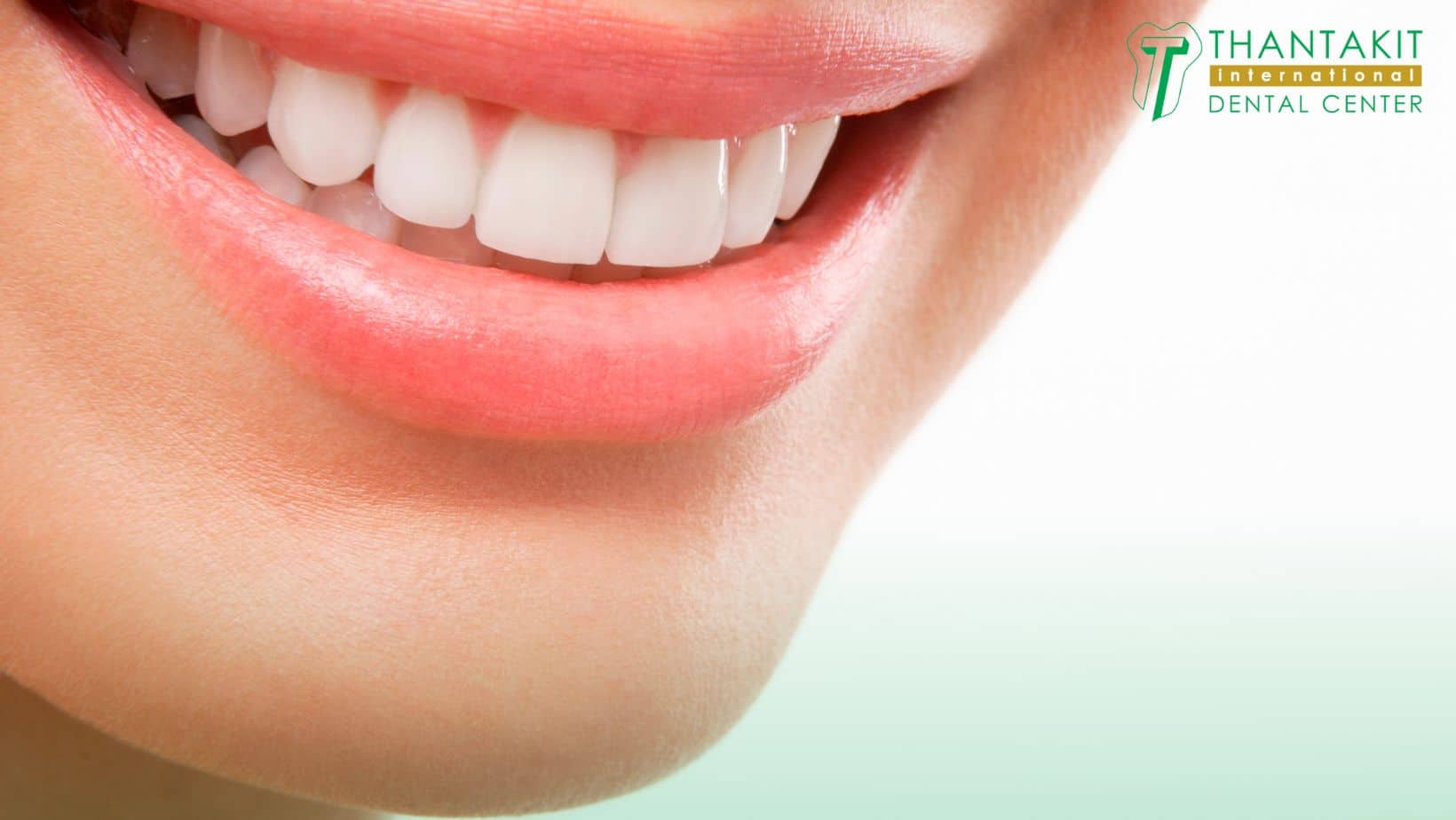
How Much Do Veneers Cost in Thailand?
The average cost of porcelain veneers in Bangkok is around $250 to $700 per tooth, which is significantly less than the industry average for veneers in the U.S. or Europe, which ranges from $900 to $2,500 per tooth.
At Thantakit, the composite resin veneer with direct bonding costs $180 per tooth. The Porcelain eMax Veneer and Zirconia Veneer cost $540 per tooth. The Zirconia Veneer with DSD (Digital Smile Design) costs $666 per tooth.
However, you can get the Zirconia Veneers with DSS at a discount of $600 per tooth if you were to put in veneers for 8 teeth, leading to a group discount.
Furthermore, all porcelain veneers at Thantakit come with a 2-year warranty to boot, which is missing in other dental clinics, centers, and hospitals.
How Long After Veneer Installation Can You Drink Water?
You can drink immediately after getting your dental veneers. In fact, you can resume eating and drinking shortly after getting the operation done, but with some slight caveats.
Just as you’d want to start with soft foods first before moving on to tougher meats or chewing gum after a tooth filling, you should also do the same with veneers. It also advised that you avoid extremely cold or hot items if you’re feeling tooth sensitivity.
What Should You Do If Your Veneers Break?
See your dentist post-haste if one or more veneers were to break. If it slightly chipped, they could simply polish it away, thus saving the rest of the veneer from breakage. If the crack is deeper, replacement might be in order.
Also, Thantakit guarantees that your veneers won’t break because it has a 2-year warranty attached to all porcelain veneer procedures. That means if they were to break within two years, you can go back and get them restored free of charge.
What are Temporary Veneers Made From?
Temporary veneers or the veneers put on your prepped teeth while you wait for the dental lab to fabricate your permanent veneers are made from composite materials. Consult your dentist in case dislodgement happens.
Because of their temporary nature and how they’re usually not applied too firmly unto the prepped teeth, they may dislodge out of place. Usually, side teeth temp veneers get dislodged more often than front teeth temp veneers.
How Many Veneers are Recommended for You to Get?
This depends on a case-by-case basis. However, if you wish to whiten all visible teeth to change the shape and look of your smile, you should get veneers for 8 to 10 teeth of yours.
When dealing with specific dental problems such as gap teeth or small teeth that don’t quite reach the teeth parallel to it, you can choose to fix only the problem areas for better efficiency. Do what makes most sense and consult your dentist for details.
The Bottom Line When It Comes to Porcelain Veneers
The main point of getting veneers in Bangkok or porcelain veneers in Thailand is because you probably lack stateside dental insurance covering cosmetic procedures and you wish to save money on veneers by getting them cheaper in the Land of Smiles.
A porcelain or composite veneer in Thailand costs much less than stateside out-of-pocket costs even when you take travel costs into consideration. Plus, you can even get a wellness vacation out of the trip!
Thantakit International Dental Center is Thailand’s longest established dental center. Situated in the bustling, modern city of Bangkok, our clinic is renowned across the globe as a trusted destination for world-class dentistry, with most of our patients flying to us from Australia.
Reach out to our clinic today and get a FREE dental consultation!



